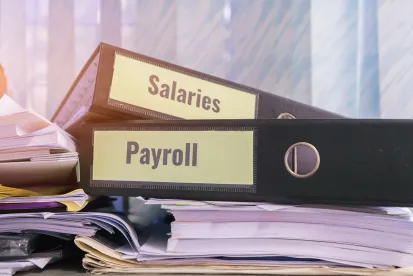Following the enactment of the Paycheck Protection Program Flexibility Act of 2020, the Internal Revenue Service (IRS) updated its frequently asked questions (FAQs) to state that employers whose Paycheck Protection Program (PPP) loan has been fully or partially forgiven are now eligible to defer the deposit of the employer portion of Social Security tax.
By way of background, the Federal Insurance Contributions Act (FICA) requires employers to withhold both Social Security and Medicare taxes from employees’ wages. Additionally, FICA requires employers to pay an equivalent share of Social Security and Medicare taxes. The Coronavirus Aid, Relief, and Economic Security (CARES) Act provides for, among other things, the deferral of the deposit of the employer share of Social Security taxes. More specifically, Section 2302 of the CARES Act allows employers that would otherwise be required to deposit the employer portion of Social Security tax incurred from March 27, 2020 through December 31, 2020, to deposit 50 percent of the deferred amount by December 31, 2021, and the remaining 50 percent by December 31, 2022.
Initially, Section 2302 of the CARES Act and the original IRS FAQs excluded employers from deferring the deposit of their Social Security taxes after they were notified by their PPP lender that their PPP loan would be totally or partially forgiven. However, when President Trump signed the PPP Flexibility Act into law on June 5, 2020, Section 2302 was amended to remove this exclusion. In light of this change, the IRS updated their answers to questions 3, 4, and 5 of the FAQs on June 26, 2020. The revised version of the FAQs reflect that all employers may defer the employer component of Social Security taxes, including those that received a fully or partially forgiven PPP loan.
In summary, this amendment to the CARES Act will be helpful to employers that received a PPP loan subject to forgiveness and are facing a decrease or shortage in cash flow due to the COVID-19 pandemic. Similar to other changes to the CARES Act, this decision by lawmakers is intended to incentivize employers to continue to keep their employees on payroll by postponing the payment of tax expenditures.




 />i
/>i

